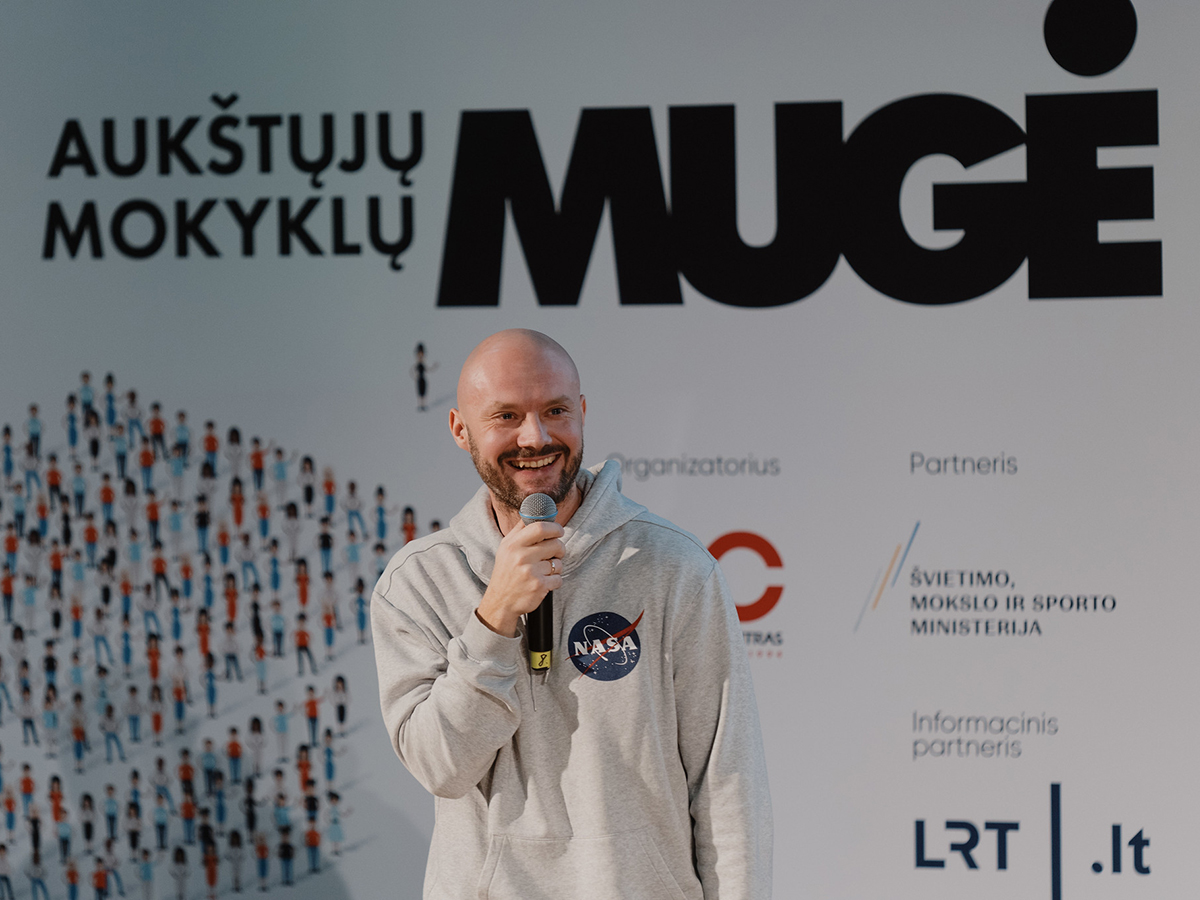 Researchers are still speculating about whether the skill of using artificial intelligence (AI) tools to improve productivity will eventually become a mandatory competency, but IT professionals do not doubt it anymore. The social partner of Vilnius University Kaunas Faculty, Head of Artificial Intelligence (AI) at “Hostinger” Tomas Rasymas is convinced that one employee using AI solutions can do as much work as several employees not benefiting from them. While not applicable in all fields, AI is the only way for many specialists to become and remain marketable in today's labour market.
Researchers are still speculating about whether the skill of using artificial intelligence (AI) tools to improve productivity will eventually become a mandatory competency, but IT professionals do not doubt it anymore. The social partner of Vilnius University Kaunas Faculty, Head of Artificial Intelligence (AI) at “Hostinger” Tomas Rasymas is convinced that one employee using AI solutions can do as much work as several employees not benefiting from them. While not applicable in all fields, AI is the only way for many specialists to become and remain marketable in today's labour market.
More than 15 years of experience in generative artificial intelligence, data science and new technologies gives T. Rasymas a comprehensive understanding of the field. On 29 January, he shared his insights with students at the event "Higher Education Fair 2025" at Kaunas Žalgiris Arena, presenting the new study programme Language and Artificial Intelligence Management started at VU Kaunas Faculty. The seminar participants also had the opportunity to take an interactive test to identify counterfeits.
“Artificial intelligence offers many opportunities. Of course, the challenges are just as great, and the search for solutions constantly requires professional discussions,” says the expert, inviting us to imagine personalised services, faster diagnostics, solution development and... potential threats.
T. Rasymas points out that in addition to achieving efficiency gains, AI deployment is also about increasing access to essential services (e.g. in medicine and education), reducing resource demands, and promoting economic growth and sustainable development.
Working with generative AI usually starts with a query, which can be a text, an image, a video, sheet music or any other input the AI system can process. Various AI algorithms create new content in response to the query. Content can range from essays, solutions to problems, or even real-life forgeries created from personal photos or audio recordings.
“In other words, generative AI is an artificial intelligence technology that allows you to create different types of content: text, video and audio. However, not everyone is well acquainted with the principle of its operation and how to use it effectively, so professional training helps avoid potential threats and create an appropriate culture of use,” says T. Rasymas.
The expert suggests that more attention should be paid to the reliability of working with AI and quality control. It is observed that the sudden fascination with the new technology and its potential has so far left behind essential aspects such as ethics and bias, privacy and data security. There is no doubt that paying proper attention to the appropriate and legitimate use and storage of data can help reduce cybersecurity risks.
T. Rasymas invites to explore the energy efficiency of AI, the possibility to strengthen contextual memory, and the limits of creativity.
The AI expert is convinced that cooperation between business, science, and government organisations is the key to solving such socially relevant and even sensitive nuances of using AI as legal regulation and liability, as well as the ethics of human substitution, reliability, and quality control.
The social partner of the new study programme Language and Artificial Intelligence Management at Vilnius University Kaunas Faculty, the Head of Artificial Intelligence (AI) at “Hostinger” Tomas Rasymas is convinced that this programme will fill a niche in the market. English language studies that develop the skills to produce and edit written, spoken and multimodal texts of different genres and types, critically assessing cultural, social, stylistic and other contexts, will help train the future experts who will make AI smarter, more ethical and more engaging. It is also promising that the trained professionals will have the skills and abilities to ensure the connection and interaction between people and AI, to recognise false or unethical content generated by AI, and to be able to identify cases of psychological manipulation by social engineering.